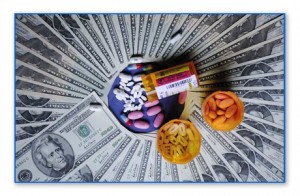
Online database lets you research the side effects of common psychiatric drugs
(NaturalNews) If you have ever seen a commercial for a pharmaceutical drug, you are probably familiar with the long list of dangerous side effects that are rattled off in the last five seconds of the advertisement, just after viewers are told how Drug “X” is going to save their lives, improve their memories or give them unlimited energy. What was that? Did he just say that pill might cause bleeding out of my eyes? Drug companies do a great job – and spend a lot of money – to ensure that most consumers aren’t aware of the harmful side effects of common drugs prescribed for conditions like depression, heart disease, arthritis, ADHD or high blood pressure. Unfortunately, the result of this has created a society where the average person with a health problem is captivated by the promises delivered in clever advertising. There is a drug for everything? All I have to do is talk to my doctor? How convenient.
But what if there was a way to take back control of our lives and our health? What if, despite talking to your doctor, you still have questions or concerns about the safety of a drug?
The Citizens Commission on Human Rights International (CCHR) has a database that allows you to do just that. It’s called the Psychiatric Drug Database, and it allows consumers to research the potential side effects of common psychiatric drugs, such as Ritalin or Wellbutrin.


